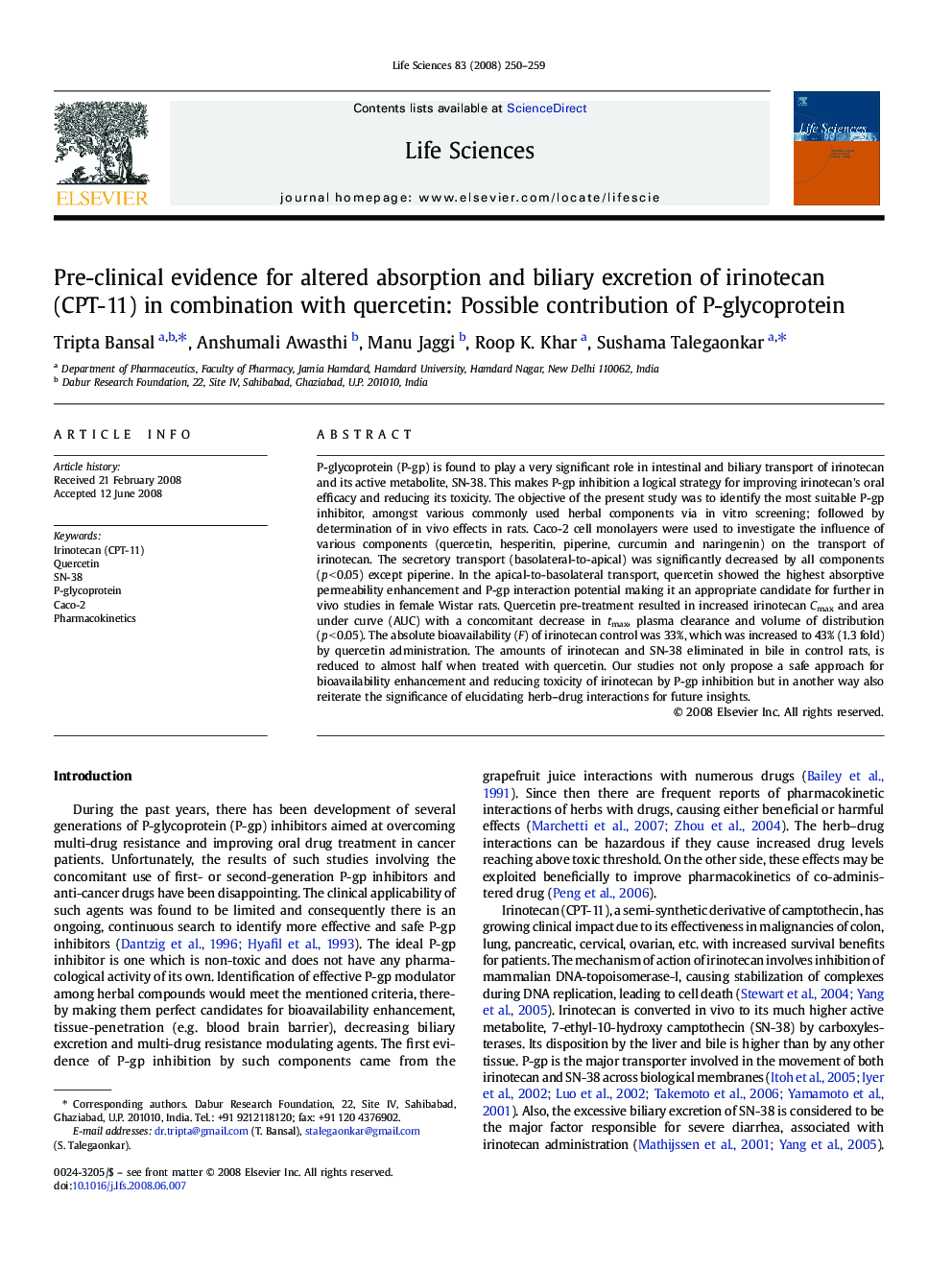| Article ID | Journal | Published Year | Pages | File Type |
|---|---|---|---|---|
| 2552486 | Life Sciences | 2008 | 10 Pages |
P-glycoprotein (P-gp) is found to play a very significant role in intestinal and biliary transport of irinotecan and its active metabolite, SN-38. This makes P-gp inhibition a logical strategy for improving irinotecan's oral efficacy and reducing its toxicity. The objective of the present study was to identify the most suitable P-gp inhibitor, amongst various commonly used herbal components via in vitro screening; followed by determination of in vivo effects in rats. Caco-2 cell monolayers were used to investigate the influence of various components (quercetin, hesperitin, piperine, curcumin and naringenin) on the transport of irinotecan. The secretory transport (basolateral-to-apical) was significantly decreased by all components (p < 0.05) except piperine. In the apical-to-basolateral transport, quercetin showed the highest absorptive permeability enhancement and P-gp interaction potential making it an appropriate candidate for further in vivo studies in female Wistar rats. Quercetin pre-treatment resulted in increased irinotecan Cmax and area under curve (AUC) with a concomitant decrease in tmax, plasma clearance and volume of distribution (p < 0.05). The absolute bioavailability (F) of irinotecan control was 33%, which was increased to 43% (1.3 fold) by quercetin administration. The amounts of irinotecan and SN-38 eliminated in bile in control rats, is reduced to almost half when treated with quercetin. Our studies not only propose a safe approach for bioavailability enhancement and reducing toxicity of irinotecan by P-gp inhibition but in another way also reiterate the significance of elucidating herb–drug interactions for future insights.
